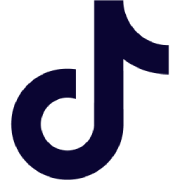3 reasons why you should learn to code
The language that’s becoming more and more popular is that of zeros and ones, of brackets and asterisks, of ampersands and exclamation points. The name of that language? Coding. Here’s why you should learn to code.

You’re using coding right now
Are you reading this on a mobile, tablet or a computer? Did you log into a desktop this morning, or make use of a security pass to get into your building? Do you regularly speak to colleagues, clients and customers via video conferencing?
If the answer to any one of those questions is ‘yes’ then you’ll indirectly be using coding every day. Every machine or device that we use, relies on coding somewhere along the line – and with roles becoming increasingly digitised, most of us would struggle to do our jobs without it.
Why you should learn to code – even if it’s not your job
1. It will maike you employable
According to this study by PWC, 74% of workers are willing to learn new skills or completely retrain, in order to remain employable in the future. And, it stands to reason that learning the language of the future will make you employable.
The thing is, these skills are useful regardless of your current role. This skillset is clearly in demand with programming jobs growing 50% faster than the market overall.
2. It is Incredibly useful life skill
While coding is a highly sought-after skill for businesses of all sizes – it’s also an incredibly useful life skill, particularly if you’re a freelancer or contractor.
Not only will you be able to create your own website with website coding, you’ll be able to automate tasks that could otherwise cause a significant time drain.
Things like data entry or responding to easy-to-answer questions from a customer can all be handed over to a piece of software – as long as it’s coded correctly. Even the most basic knowledge is useful.
Why wait for a member of the technical team to get back to you, when you can make small tweaks and changes yourself, and move on to the next task quickly and efficiently?
3. It is easy to learn, and available to all
It’s never been easier to learn to code. Once limited to those undertaking a three-year degree, coding is now available to all.
There are loads of resources to learn coding for free online (e.g. Codecademy that offers free coding classes) but if you want to step it up to another level, businesses like Le Wagon can see you going from zero knowledge to being well equipped to take on multiple coding challenges in as little as three months.
What are the different coding languages?
In its most basic sense, coding is translating logical actions into a language that a computer will understand. This allows us to tinker with apps, create software and websites, play video games and much more.
If we think of ‘coding’ as the overall means of communication – the voice, then all the different languages are the regional dialects – they’re all words and phrases that are used to communicate with a machine, just expressed in slightly different ways.
Each coding language is designed with a different operating system, platform, coding style and intended use in mind. The common ones you’ll hear are languages such as JavaScript, Python, SQL, PHP, Ruby, Java, and C alongside more modern flavours like Rust, Swift, and Hack – though there are many, many more.
Communicate in the language of the world
The key take-home from this is simply, learn the language of coding. Whether you’re running a business or working for one, the key skills you’ll pick up by learning coding will set you up for the future.
So next time you think about taking up a new language, immersing yourself in phrases and grammar, pick learn to code and find yourself communicating in the language of the world.
Finally, an inspiring video from the non-profit organisation code.org
Free CV template
We developed a free resume template for you to download.





